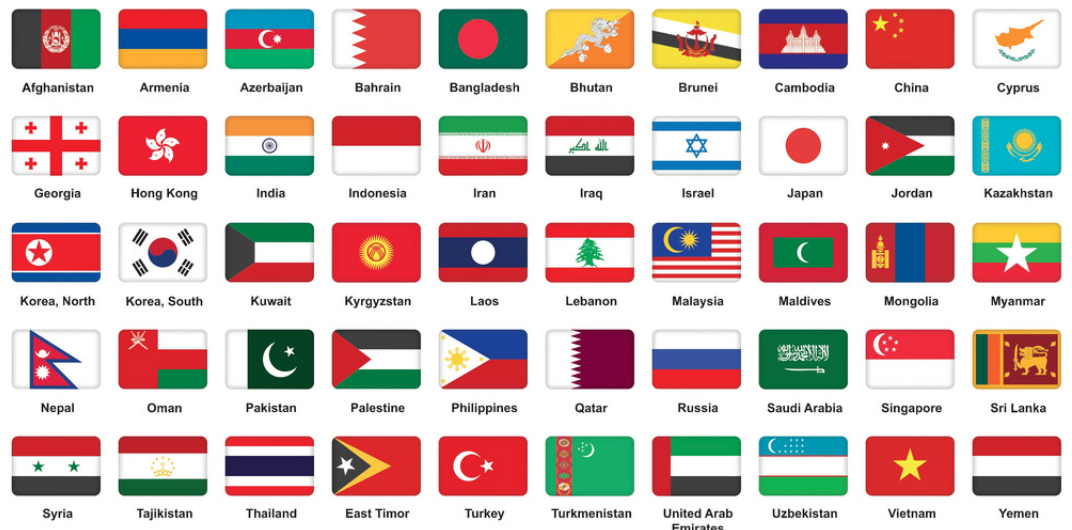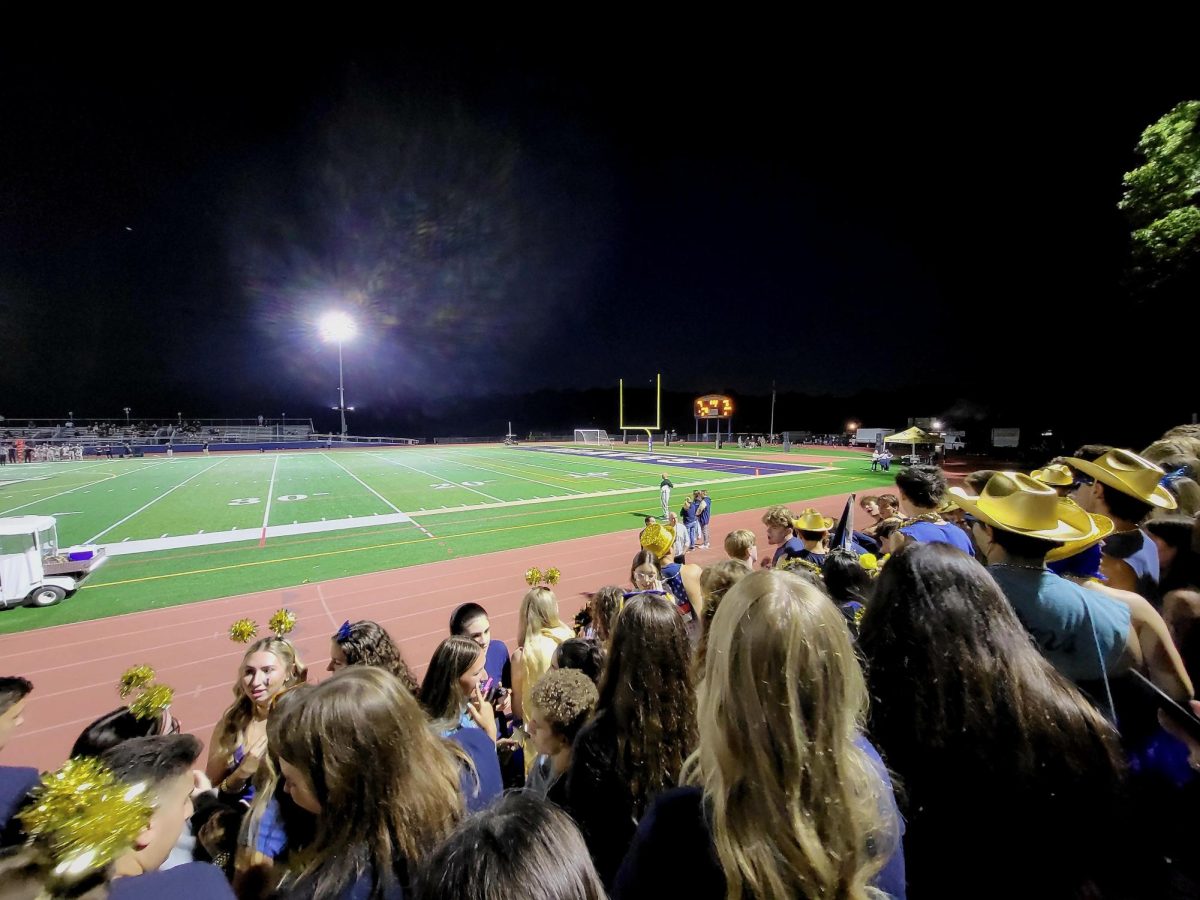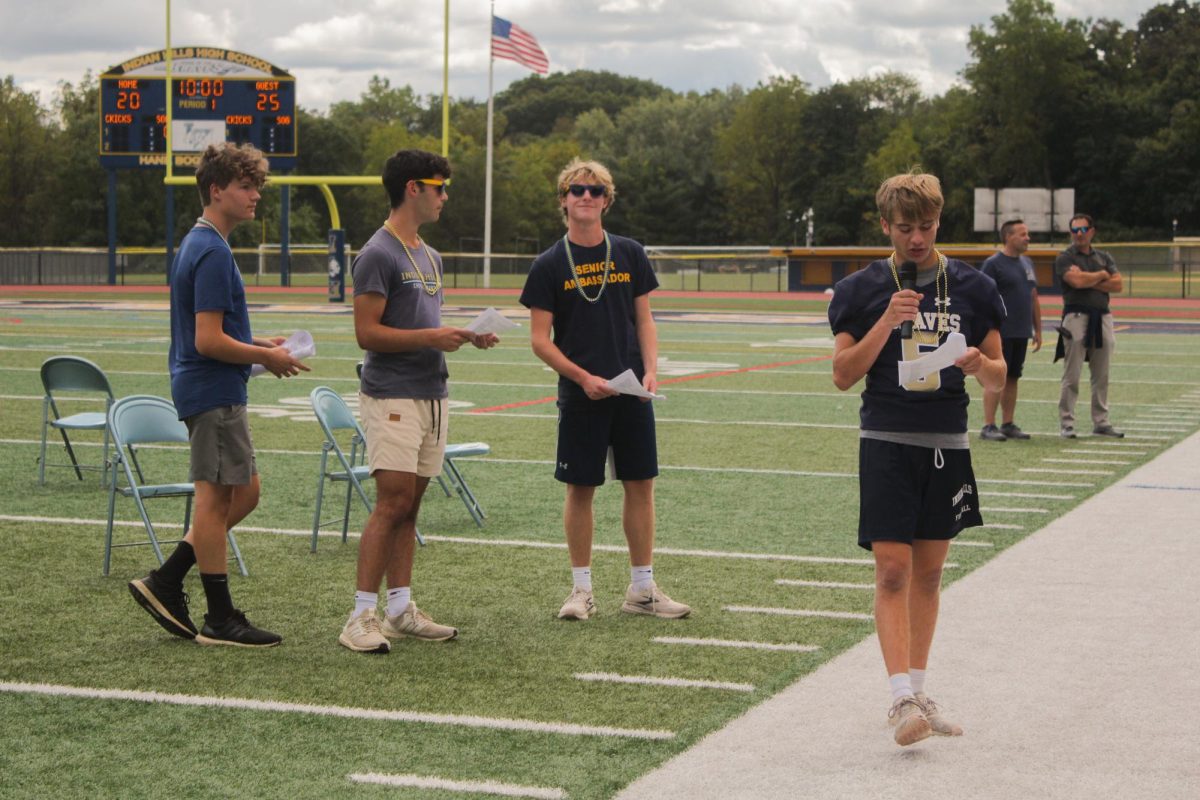(‘23)
At first glance, The Indian Hills High School history curriculum is very American and European-centric. While we do live in a seemingly western-focused country, we live in a world where everything is connected. Therefore, it is essential to be educated about how the nations and cultures of our world interact and the complex international histories. NJ state curriculums have done a commendable job promoting inclusion in our history curriculum by highlighting the impacts and points of view of people of color, indigenous people, LGBTQ+, women, different religious groups, and more recently, Asian Americans and Pacific Islanders. Especially with the growing interest in Asian culture through initiatives such as Asian Appreciation Clubs, the diversity within our history curriculum has recently come to light. Although there are already some great efforts of inclusiveness in our classes, students have expressed that there is still more to be desired to promote greater diversification and equip students for a better worldly understanding.
Students at Indian Hills have expressed some reservations about the teaching of Asian history throughout the current history curriculums. Kim Lazzara, one of the founders and presidents of the Asian Appreciation Club, says while she understands why there is no Asian History class, she hopes to see that the brief mentions/teachings of Asian history in our core classes change. The current narrative in history curriculums is that Asian countries are submissive to other nations. Even though the curriculum merely aims to explain an outdated attitude, often history textbooks and teachings describe cultures with the same outlook. Lazzara goes on to express,
“History class is kind of painful for me. I see my ancestors portrayed as savages and I see my people being tortured and killed, but others get to see their ancestors glorified. Again, I understand the curriculum is trying to portray mistakes of the past, but it definitely is a weird feeling. I know this viewpoint of history class is not shared amongst all the students of Hills, but I know there is so much rich and interesting Asian history to be learned if it was taught. So much Asian history is not mainstream knowledge despite having so many cultural, and scientific advancements.”
Fortunately, in January of 2022, Governor Phil Murphy signed legislation that “will ensure that the contributions, history, and heritage of Asian Americans and Pacific Islanders (AAPI) are included in the NJ Student Learning Standards for Social Studies” in grades K-12, setting an AAPI teaching requirement within schools. In terms of how it affects our district, Ms. Leggour, director of the Social Studies department, explains,
“We are applicable throughout all of our social studies curriculum— that means World History, US I, US II, etc. — [AAPI teaching] almost becomes another theme that goes in tandem with whatever historical events we are teaching. So just like we have the Amistad mandate that requires the teaching of people of color and the Holocaust mandate that teaches holocaust and genocide, we now have AAPI which bolsters our Asian heritage within our curriculum.”
For instance, if you are learning about the American Revolution, World War II, or the Vietnam War, classes are not just teaching what’s going on in the battlefield and in politics, they also will discuss how it impacts different groups of people. To ensure diversity and inclusion, it’s a matter of adding more points of view to lessons and activities, while also maintaining the integrity of time and pacing within the curriculum.
While the AAPI bill addresses the teaching of Asian culture in mainstream history classes, it has been questioned why there are European and American-specific electives but no classes for other heritages. In the past, Indian Hills High School offered an Asian Civilizations elective; however, due to low enrollment, the Social Studies Department stopped offering the class. Ms. Leggour shared,
“Students have a lot [of classes] to choose from, and that choice is great, but we don’t always get a full class. So if you only get one or two students signing up for something, depending on the given year, the class doesn’t necessarily run for a number of reasons… I’ve been here 20 years, and [the Asian Civilizations] course may have run once or twice in the 20 years I have been here. So we just found that students were not signing up for that class, they were signing up for other things…so as a result, we stopped offering it for registration because those one or two students—we want them to be able to sign up for a class that will be running.”
Mr. Huesser, a current social studies teacher at Indian Hills, used to teach the Asian Civilizations class. He explains, “The last time [the class] ran was the school year of 2010-11, and I taught it for 12 years prior… [we] really dove deep into the history of China, all the way back from the Ming Dynasty to the present time. Japan and Korea as well. And then another marking period we bounced around and I let the kids choose which area of Asia they wanted to learn about…That was my favorite class to teach.” Mr. Huesser shares that although he is not sure if the elective will come back, he has high hopes and would be willing to teach the class again.
In terms of the future of Indian Hills, the history department aims to increase diversity and inclusion in the curriculum by getting feedback from students on what they want to learn about. Through student surveys, the Social Studies Department can see what classes are in demand and how to better meet the needs of the students. “What we are talking about for the future was a social studies mash-up course where we could almost have something that exposes kids to all the genres of social studies, but also all different types of history based on student interest,” Ms. Leggour continues, “if there is niche history [topics] that students are really interested in—for example, kids always ask about military history. I don’t know if we necessarily need a course on military history, but here, this could be a place where we could explore that, and you could get exposed to some major historians, current history, Asian history… I know especially now with the Asian Appreciation Club I would expect that there would be students that would be like ‘this is something that we wanna learn more about’, and I think that [the mash-up course] could be a great place to offer that.”
Ultimately, the history department aims to listen to the voices and meet the needs of the student body. Ms. Leggour expresses that they really try to build students’ wishes into the curriculum to make sure no one goes underrepresented. All people deserve to know they matter, are being heard, and belong. As students, it is up to us to start initiatives and speak up about any grievances or ideas to make the school a more comfortable, inclusive environment.






